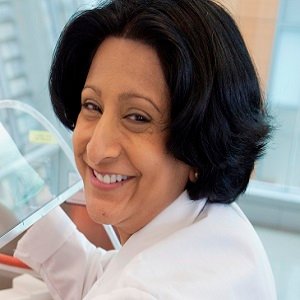
A large amount of effort by the South Korean government, academic, and business sectors has gone into enhancing the R&D infrastructure to support stem cell research
Singapore: Pharmicell is commercializing Hearticellgram for acute myocardial infarction, Dong A Pharma has developed Cartistem for knee cartilage injury and Anterogen has developed Cupistem for Crohn's disease.
To promote advances made by stem cell researchers and professionals, Thermo Fisher Scientific held a stem cell workshop in South Korea recently chaired by stem cell and iPS cell expert, Dr Nirupama (Rupa) Shevde. Around 60 scientists from universities involved in research in medicine and health care as well as professional researchers from private companies attended the session at Thermo Fisher Scientific Suseo location in Seoul.
Dr Shevde is a global customer training manager in Life Sciences solutions group at Thermo Fisher Scientific. She has extensive experience in both mouse and human pluripotent stem cell research and has served as a senior scientist and director of education at WiCell Research Institute and Morgridge Institute for Research since 2005 until July 2012. Under the scientific leadership of human embryonic stem cell pioneer, Dr James Thomson, Dr Shevde has developed a Stem Cell Training Course which has served over 800 scientists from 32 US states and 20 countries. Dr Shevde has worked with Dr Thomson's laboratory and gained expertise in the novel Essential 8 Medium, Vitronectin (VTN-N) substrate and non-integrating episomal reprogramming technology developed by Dr James Thomson and marketed by Life Technologies.
In an interview with BioSpectrum Asia, Dr Shevde shares her thought and experience on stem cell research landscape in Korea and how the country is building its capacity to excel in this field.
What has been your experience while providing workshop to Korea stem cell researchers and how is Korea progressing in building stem cell capacity?
For more than a decade, we have provided stem cell scientists around the world with technologies and products to address challenges in stem cell research. With our complete portfolio of stem cell products and services, we believe that we can contribute to maximize the research and application of stem cells in South Korea with workshops like this.
With the goal of supporting regenerative medical therapy, the global market for stem cells has grown at the average annual rate of 23.5 percent with revenues of $8.6 billion in 2005 and is expected to generate $70.4 billion in 2015, according to market reports. The market in Asia is rapidly growing and within it, the market in South Korea is growing significantly as well. For example, South Korea is leading the stem cell expansion as the first country worldwide to approve three stem cell therapy drugs.
We are also finding that the stem cell market is growing fast due to technical developments for stem cells. The government of South Korea is showing support for stem cell research in various aspects to secure core technologies and scientific clinical research, build infrastructure, and strengthen bioethics policy. We are looking forward to continued rapid growth in the future by supporting South Korea's goal of becoming one of the world's top three leaders in stem cell research.
What are the main elements of your stem cell workshop in Korea?
Thermo Fisher Scientific established its LifeLab Stem Cell Research Centers in Carlsbad, CA, USA and Madison, WI, USA. These centers provide customers with hands-on stem cell training in techniques for culturing and characterizing human embryonic stem cells (hESCs) and induced pluripotent stem cells (iPSCs), as well as reprogramming techniques for the creation of iPSCs. As the global training manager for LifeLab, I was given a chance to visit South Korea to help educate the stem cell research community on our technologies and products and continue building on our good relationships with researchers. The stem cell workshop we recently held in our Suseo office, provided scientists with education on our latest tools for culturing, reprogramming, and characterizing iPSCs.
How do you see Korea scientists trained and equipped to take stem cell research to much advancer stage?
South Korea is working hard to build up its stem cell research infrastructure, and there has been a 55 percent increase in Master's and Doctoral degrees in the life sciences over the last two years. Recently, universities and healthcare companies are setting up more labs and institutes focusing on stem cells. A large amount of effort by the South Korean government, academic, and business sectors has gone into enhancing the R&D infrastructure to support stem cell research. This support will help to significantly advance the knowledge and application of stem cells.
What are the challenges you see for Korea in the field of stem cell research?
We believe it is important that global companies like us, who are rooted deeply in supporting the country's researchers, continue to deliver information and solutions that will support the South Korean scientific community's needs, so they can face challenges such as finite resources and changing research environments.
Do you see any sudden transformation in global regulatory bodies regarding the development and approval process of stem cell drugs?
As stem cell therapies are becoming more widespread, we see new questions being raised about how these types of products should be regulated. Historically, many of the questions around stem cell therapies focused on the ethical issues associated with their use, but over the last few years, regulatory focus is being placed more on ensuring the quality and safety of innovative stem cell therapies.
One of the main regulatory hurdles still faced by innovative stem cell products is that they may be classified in different ways in different countries, and many products still do not fit comfortably within existing categories. This uncertainty in classification, and regulatory differences between countries, could present a barrier to delivering the benefits of stem cell research to people worldwide. However, at the same time, scientific professionals are seeing a tremendous effort among the regulatory authorities working to remain up to date with this emerging field.




